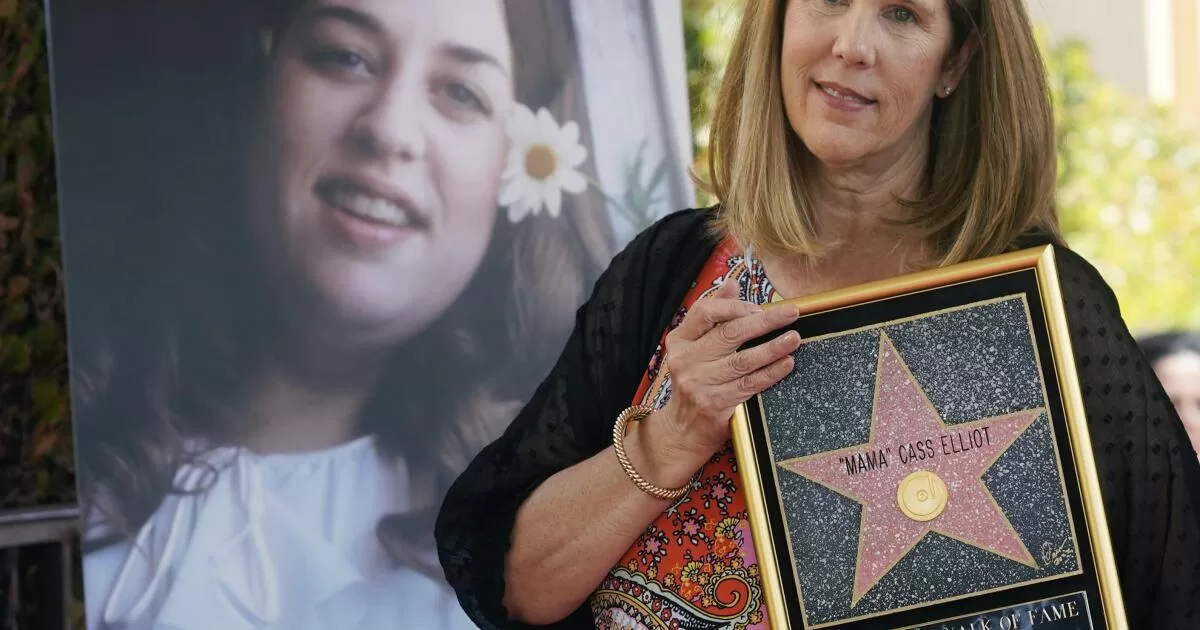That’s according to “Mama” Cass’ daughter, Owen Elliot-Kugell, who was only 7 and living in the United States when her mom died in a borrowed London flat. Now, Elliot-Kugell has pieced together details of her mother’s death for her book, “My Mama, Cass,” which dropped Tuesday.
“I would go over to kids’ houses after school and eventually one of their parents would ask me, ‘Did your mom really die choking on a ham sandwich?’” Elliot-Kugell told People. “First of all, the chutzpah to say that to a child is just crazy, but it happened a lot. So I felt it was my duty to figure out what that story was all about.
“There was a ham sandwich, but she didn’t eat it and she didn’t choke on it. So enough with the jokes,” Elliot-Kugell told the BBC.
The “California Dreamin’” singer was performing solo in 1968 after a few years with the Mamas & the Papas, and on June 27, 1974, she found herself staying at a London flat loaned to her by pal Harry Nilsson. She had just completed her two-week run of shows at London’s Palladium and then stayed up for 36 hours straight, her daughter said, for Mick Jagger’s birthday party and then a brunch in her honor the next day. When she got home, she was hungry, so an assistant made her a ham sandwich. She fell asleep without taking a bite.
On June 29, she was found dead in bed.
The story about what Elliot-Kugell called “the stupid sandwich” was, it turns out, invented by the singer’s manager, Allan Carr. He fed it to a journalist, Sue Cameron, who wrote it up in the Hollywood Reporter, Elliot-Kugell told the BBC.
“He was crying and upset and he said, ‘There’s a half-eaten ham sandwich on the nightstand,’” Cameron told People. Carr was concerned that the “Monday, Monday” singer — like peers Janis Joplin in 1970 and Jim Morrison in 1971 — had overdosed. But there wasn’t enough information yet about her death, and, wanting to protect Elliot, she said, he told the inquisitive writer, “Just say she died choking on the sandwich.”
The fib seemed to play into the media focus on Elliot’s weight, as seen in coverage of her passing and the aftermath.
Upon Elliot’s death, Carr told The Times’ wire services that she had died in her sleep at age 33 and gave no cause of death. But the fourth paragraph of a four-paragraph L.A. Times brief about her death read, “Miss Elliot, who weighed 238 pounds … was renowned for her numerous crash diets. She was hospitalized during one such diet.”
“Cass Elliot, the rotund American singing star who first won acclaim as a member of the Mamas and the Papas pop-singing group in the 1960s, was found dead in bed Monday night in her London apartment,” read the first paragraph of her L.A. Times obituary, published on July 30, 1974, the same day autopsy results were expected.
Her personal physician told The Times the made-up story: She probably choked to death on a ham sandwich. Of course, that detail made it into the obituary’s headline.
“But she was a very big lady and I could not rule out the possibility of a heart attack,” the doctor said. “She had been dead for a considerable time before her body was found.”
On Aug. 6, 1974, the Associated Press reported that Mama Cass had died of a heart attack, citing testimony given in a British death inquest.
“She weighed twice as much as she should have,” a pathologist told the inquest. “One of her heart muscles had turned to fat.” He added that the stress in what AP called “the last 48 hours of the bouncy singer’s life” may have triggered the heart attack.
Elliot was found naked in bed, propped up against two pillows, a coroner told the inquest. No drugs were found in her system.
Now her daughter is trying to correct what she told the BBC was the “beyond frustrating, almost immeasurable” falsehood about how her mother died.
“She knew when she was a teenager that she wanted to be a performer and told everybody that she was going to be the most famous fat girl that ever lived,” Elliot-Kugell said of her mother, who had struggled with obesity since she was 7 and was prescribed amphetamines as a teen to combat her weight gain.
“She had that forethought of knowledge as a child. I think that’s pretty cool. I think that’s really cool.”
Times researcher Valerie Hood contributed to this story.
